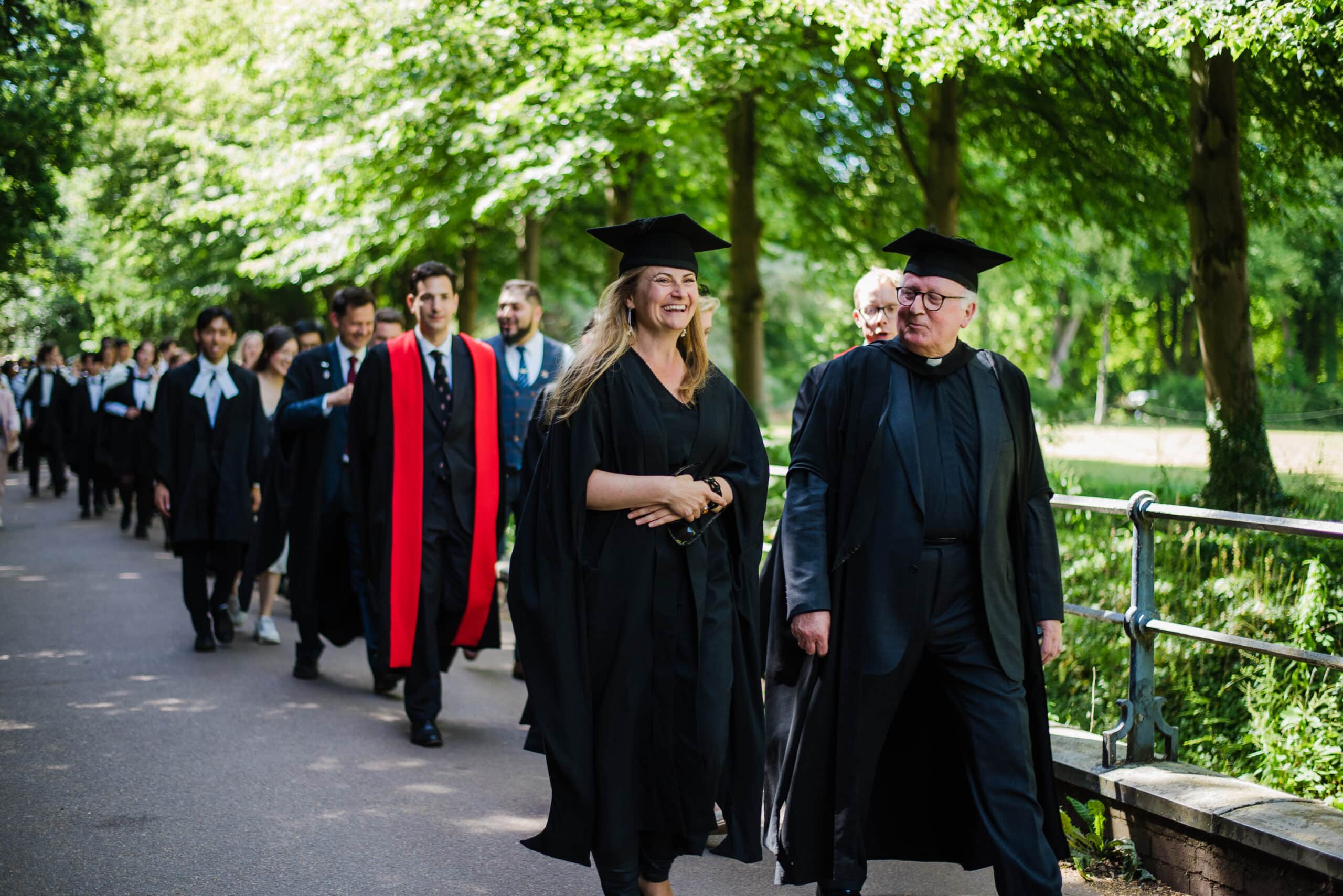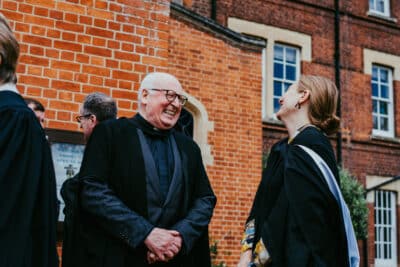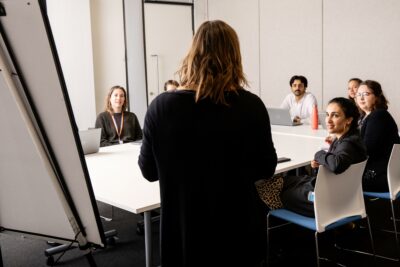St Edmund’s College was established as a corporate body under a Royal Charter granted in 1998. Its full corporate title is The Master, Fellows and Scholars of St Edmund’s College in the University of Cambridge. Responsibility for the governance of the College rests with the Governing Body, which consists of the Master and approximately 56 Fellows (Titles A-D).
The legal basis of the College’s structure and governance is set out in its Charter alongside the Statutes and Ordinances.
There are additional supporting documents, covering the specific areas of Freedom of Speech, the Disciplinary Code for Students and Disciplinary Code for Fellows, which can be found under policies and procedures alongside information on how the College carries out its objectives.
The College is a registered charity (registration number 1137454). The College’s charitable objectives are to:
- advance education, religion, learning and research in the University of Cambridge
- provide for that purpose a college for men and women who shall be members of the University wherein they may work for degrees of the University or may carry out postgraduate or other special studies at Cambridge
- promote and facilitate contributions from the Catholic Church and from members of the Catholic Church in carrying out the foregoing objectives.
College Council
The Council is responsible for the financial, legal and operational management of the College, having regard to the ultimate authority of the Governing Body. The Council consists of the Master, eleven Fellows and two resident Junior members of the College. It meets several times in each Full Term. The College Council consists of:
Ex-Officio Members
- Master
- Vice-Master
- Bursar
- Senior Tutor
- Dean
- Secretary of the Governing Body
Voted Governing Body Members
- Prof Edwin Chilvers
- Dr Kristen MacAskill
- Dr Vittorio Montemaggi
- Dr Rafia Al-Lamki
- Dr Matthew Psycharis
- Mrs Kate Wilson
College Committees
Although the College is governed by the Governing Body (consisting of the Master and Fellows), much of the detailed running of the College is carried out by a number of committees. These committees and their chairs are listed below.
Committee
- Dean’s (Chair: The Dean)
- Education and Learning (Chair: The Master)
- Equality, Diversity and Inclusivity (Chair: The Vice-Master)
- Finance, Audit and Resources (Chair: The Master)
- Nominations (Chair: The Master)
- Statutes and Ordinances (Chair: The Master)
- Von Hügel Institute (Chair: The VHI Director)
Public Benefit
The College provides, in conjunction with the University of Cambridge, an education for undergraduate and graduate students, which is recognised internationally as being of the highest standard. This education develops students academically and advances their leadership qualities and interpersonal skills and so prepares them to play full and effective roles in society.
The College admits as students those who have the highest potential for benefiting from the education provided by the College and the University, regardless of their financial, social, religious or ethnic background. The College provides financial support to its students, through scholarships, awards and prizes to fund fees, living costs and reward academic excellence.
There are no restrictions on entry to the College, other than academic excellence, and the College supports study in all subject areas offered by the University. However, under University Statutes, undergraduates must be 21 or over when they commence their studies at the College
The College advances research through:
- Supporting the work of its Research Institute, the Von Hügel Institute
- Providing Research Fellowships to outstanding academics at the early stages of their careers, which enables them to develop and focus on their research
- Supporting research work pursued by its other Fellows through promoting interaction across disciplines, and encouraging visits from outstanding academics from abroad
The College carries forward the tradition, continuous since its foundation, of being a place of spiritual and ethical reflection on the Christian faith and its implications for the individual and society. In particular, the College:
- Maintains and supports the Chapel as a place of religious worship and holds a variety of religious services, which are open to the general public, as well as members of the College
- Supports, through the Dean, who is a Roman Catholic priest, the emotional, mental and spiritual wellbeing of all members of the College community, whatever their faith tradition, or none
- Maintains its historic connection with the Roman Catholic Church
College Accounts and Financial Reports
The College’s financial operations are reflected in its annual report and financial statements for each year ending 30 June.
Previous years are available on application to the Bursar.





